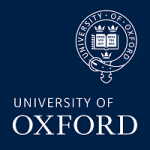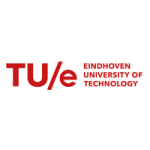项目介绍
About the course
The Modern Statistics and Statistical Machine Learning CDT is a four-year DPhil research programme (or eight years if studying part-time). It will train the next generation of researchers in statistics and statistical machine learning, who will develop widely-applicable novel methodology and theory and create application-specific methods, leading to breakthroughs in real-world problems in government, medicine, industry and science.
This is the Oxford component of StatML, an EPSRC Centre for Doctoral Training (CDT) in Modern Statistics and Statistical Machine Learning, co-hosted by Imperial College London and the University of Oxford. The CDT will provide students with training in both cutting-edge research methodologies and the development of business and transferable skills – essential elements required by employers in industry and business.
Each student will undertake a significant, challenging and original research project, leading to the award of a DPhil. Given the breadth and depth of the research teams at Imperial College and at the University of Oxford, the proposed projects will range from theoretical to computational and applied aspects of statistics and machine learning, with a large number of projects involving strong methodological/theoretical developments together with a challenging real problem. A significant number of projects will be co-supervised with industry.
The students will pursue two mini-projects during their first year (specific timings may vary for part-time students), with the expectation that one of them will lead to their main research project. At the admissions stage students will choose a mini-project. These mini-projects are proposed by our supervisory pool and industrial partners. Students will be based at the home institution of their main supervisor of the first mini-project.
For students whose studentship is funded or co-funded by an external partner, the second mini-project will be with the same external partner but will explore a different question.
The students will then begin their main DPhil project at the beginning of the third term, which can be based on one of the two mini-projects. Where appropriate for the research, student projects will be run jointly with the CDT’s leading industrial partners, and you will have the chance to undertake a placement in data-intensive statistics with some of the strongest statistics groups in the USA, Europe and Asia.
Alongside their research projects students will engage with taught courses each lasting for two weeks. Core topics will be taught during at the beginning of their first year (specific timings may vary for part-time students) and are:
- Bayesian Modelling and Computation
- Statistical Machine Learning; and
- Modern Statistical Theory.
Students will also be required to take a number of optional courses throughout their four years, which could be made up of choices from the following list: Advanced Monte Carlo methods, Causality and Graphical models, Networks, Nonparametric Bayes, Modern Asymptotics, Optimisation, (Deep) learning Theory and Practice, Reinforcement learning and Multi-Armed Bandits, Applied statistics and Genetics/computational biology.
Supervision
The allocation of graduate supervision for this course is the responsibility of the Department of Statistics (Oxford) and/or the Department of Mathematics (Imperial). It is not always possible to accommodate the preferences of incoming graduate students to work with a particular member of staff. A supervisor may be found outside these departments.
Students are matched to their supervisor for the first mini-project at the start of the course. Within the first year of the course, the student will have the opportunity to work with an alternative supervisor for a second mini-project. It is normal for one of these mini-projects to lead to the full DPhil project with the same supervisory team as was in place for the mini-project chosen.
Assessment
Each mini-project will be assessed on the basis of a report written by the student, by researchers from Imperial and Oxford.
All students will be initially admitted to the status of Probationer Research Student (PRS). Within a maximum of six terms as a full-time PRS student or twelve terms as a full-time PRS student, you will be expected to apply for transfer of status from Probationer Research Student to DPhil status. This application is normally made by the fourth term for full-time students and by the eighth term for part-time students.
A successful transfer of status from PRS to DPhil status will require the submission of a thesis outline. Students who are successful at transfer will also be expected to apply for and gain confirmation of DPhil status to show that your work continues to be on track. This will need to done within nine terms of admission for full-time students and eighteen terms of admission for part-time students.
Both milestones normally involve an interview with two assessors (other than your supervisor) and therefore provide important experience for the final oral examination.
Full-time students will be expected to submit a thesis at four years from the date of admission. If you are studying part-time, you be required to submit your thesis after six or, at most, eight years from the date of admission. To be successfully awarded a DPhil in Statistics you will need to defend your thesis orally (viva voce) in front of two appointed examiners.
The final thesis is normally submitted for examination during the fourth year (or eighth year if studying part-time) and is followed by the viva examination. The final award for Oxford based students will be a DPhil awarded by the University of Oxford.
Graduate destinations
This is a new course and there are no alumni yet. StatML is dedicated to providing the organisation, environment and personnel needed to develop the future industrial and academic individuals doing world-leading research in statistics for modern day science, engineering and commerce, all exemplified by ‘big data’.
Changes to this course and your supervision
The University will seek to deliver this course in accordance with the description set out in this course page. However, there may be situations in which it is desirable or necessary for the University to make changes in course provision, either before or after registration. The safety of students, staff and visitors is paramount and major changes to delivery or services may have to be made in circumstances of a pandemic (including Covid-19), epidemic or local health emergency. In addition, in certain circumstances, for example due to visa difficulties or because the health needs of students cannot be met, it may be necessary to make adjustments to course requirements for international study.
Where possible your academic supervisor will not change for the duration of your course. However, it may be necessary to assign a new academic supervisor during the course of study or before registration for reasons which might include illness, sabbatical leave, parental leave or change in employment.
For further information please see our page on changes to courses and the provisions of the student contract regarding changes to courses.
录取要求
-
a first-class or strong upper second-class undergraduate degree with honours in mathematics, statistics, physics, computer science, engineering or a closely related subject.
-
However, entrance is very competitive and most successful applicants have a first-class degree or the equivalent.
联系方式
电话: +44 1865 270000相关项目推荐
KD博士实时收录全球顶尖院校的博士项目,总有一个项目等着你!




